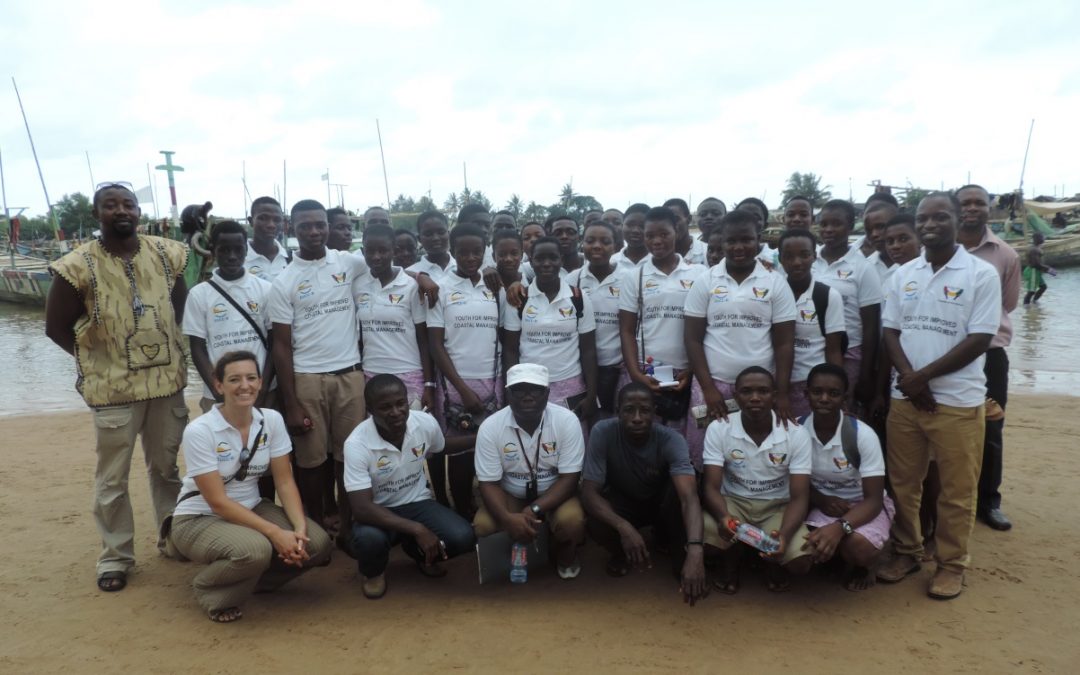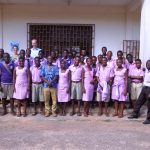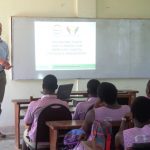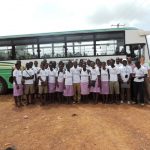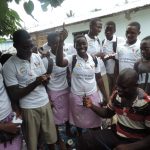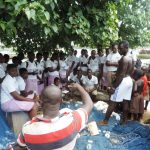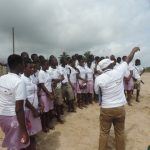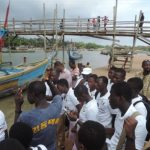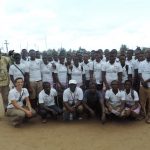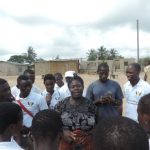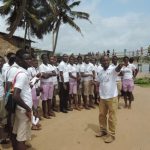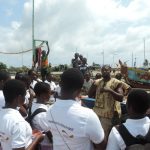Friends of the Nation has started activities under the Commitment for Africa Project. One of the initiatives includes enhancing the capacity of youth for improved coastal zone management in Ghana and Germany. In this regard, FoN has, together with its German project partner Costal Union of Germany (EUCC-D), founded a school club called Coastal Management Club at Shama Senior High School. The club will enhance capacity of youth for improved coastal zone management. First for six months, students between age 15 and 17 will learn more about sustainable coastal management.
In November 2013, FoN has undertaken a first field trip to Akwidaa, a major fishing village in the Western Region, with the Coastal Management Club of Shama Senior High School. The team comprised the club members, two project team members from FoN, the Deputy Director of Fisheries Commission-Western Region and two journalists.
The purpose of the visit was to provide the students and tutors practical knowledge and experience on fisheries and coastal resource management in coastal communities.
The group received practical knowledge and experience on the following topics:
- Overview of the fishing industry in Ghana
- The key fishing and coastal issues in Akwidaa
- Coastal resources and their importance
The group was briefed on the overview of the fishing industry in Ghana by Emmanuel Marfo of the Fisheries Commission. He explained the role of the Fisheries Commission in the regulation of the fishing industry and the contribution of the industry to the local and national economies. Among other things, the team learnt about some key statistics in the fishing industry such as the per capita consumption in Ghana, contribution to GDP, number of people employed and the nutritional contribution of fish.
An overview of the fishing industry in Akwidaa was narrated by the Assistant to the Konkohemaa. The Konkohemaa is the leader of fishmongers and processors. Her role is to bargain with the fishermen for the price of landed fish on behalf of her colleagues. The group learnt that the local economy of Akwidaa revolves around artisanal fishing and farming. The team also learnt about the role of the Konkohemaa and her assistants and how they are appointed; the types of fish species harvested and the key coastal and fisheries issues in Akwidaa.
A former Assembly member, Birch Assilidjoe, explained to the group the types of canoes used for fishing in the village. He indicated that there are about 100 canoes (small and big) in the community with about 65 powered by outboard motors while the rest use paddles.
The team had an interesting interaction with a fisherman who was mending his net at the time of visit. He explained the types of gears used for fishing in Akwidaa. He educated the team on the effects of the use of light, chemicals and dynamite to fish and urged the team to join the campaign to speak against these bad practices.
The group was also exposed to some coastal resources and features and their importance in the community. These were the beach, mangroves, estuary, lagoon and rocks.
The trip was very beneficial as it exposed the group to practical knowledge and experience of the dynamics of activities in a coastal community. For most of the students and teachers, this was the first time they were exposed to fishing practices and village life of a fishing community. In this regard, the trip served as a good exercise in providing useful lessons in coastal resource management.
In a response to a media interview, a tutor of the school, Prosper Mawutor, expressed that the trip was an eye opener and that it would go a long way to deepen the understanding of the students on coastal management issues. He was grateful to Friends of the Nation for facilitating the trip.

